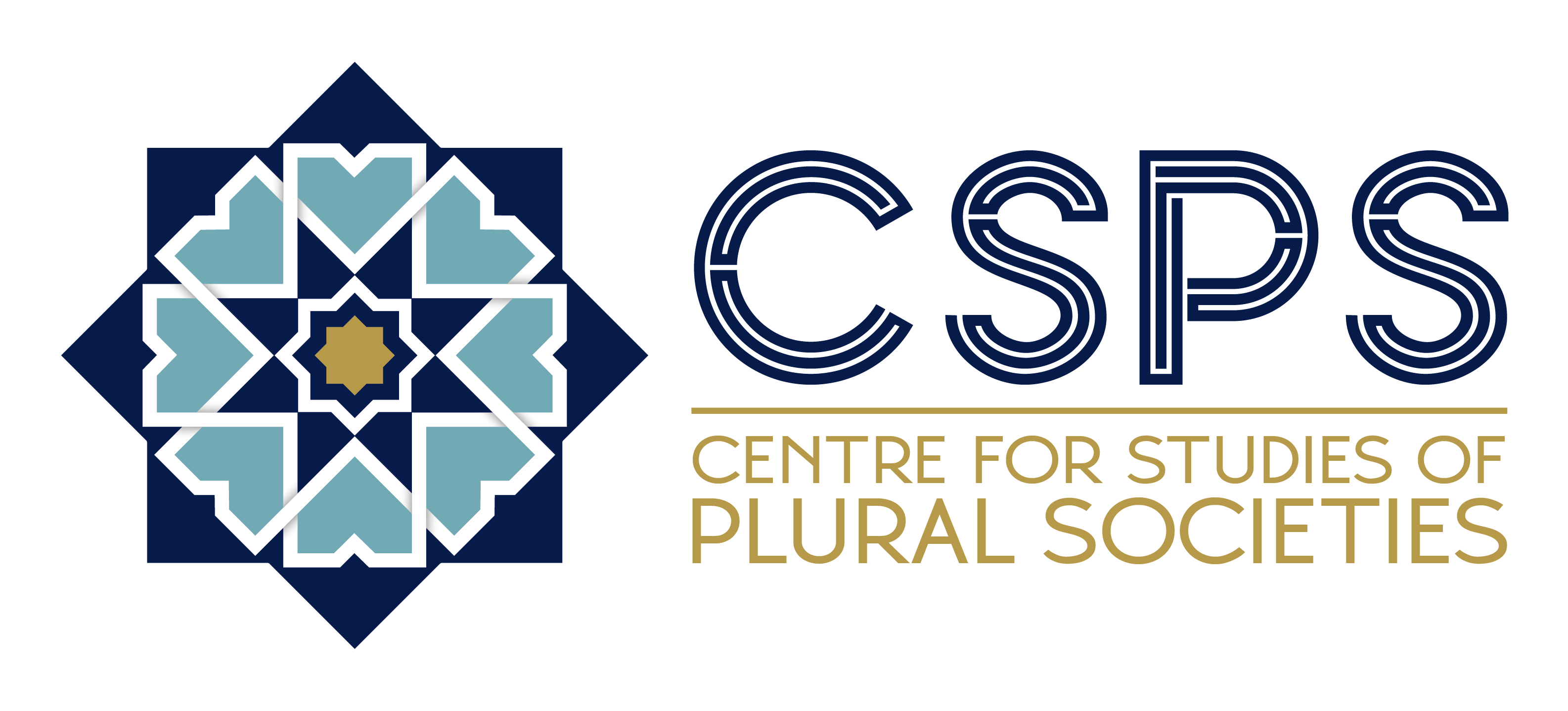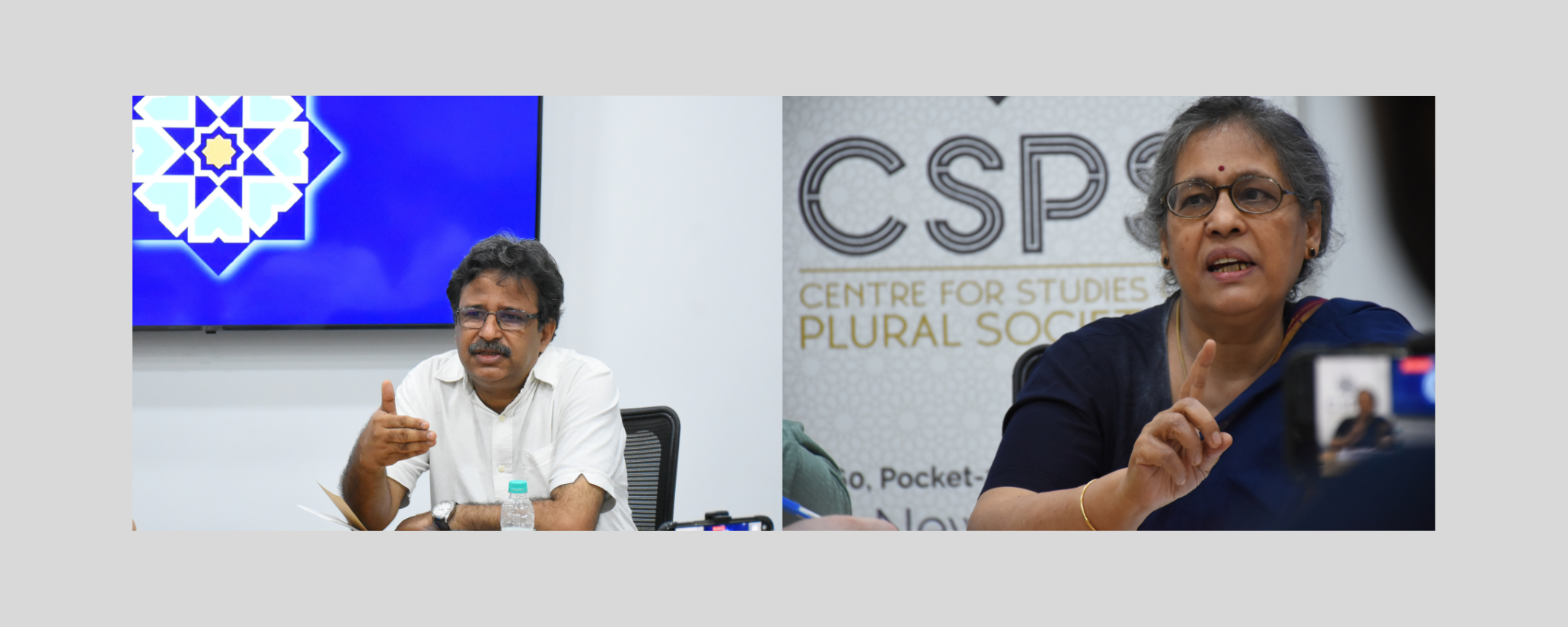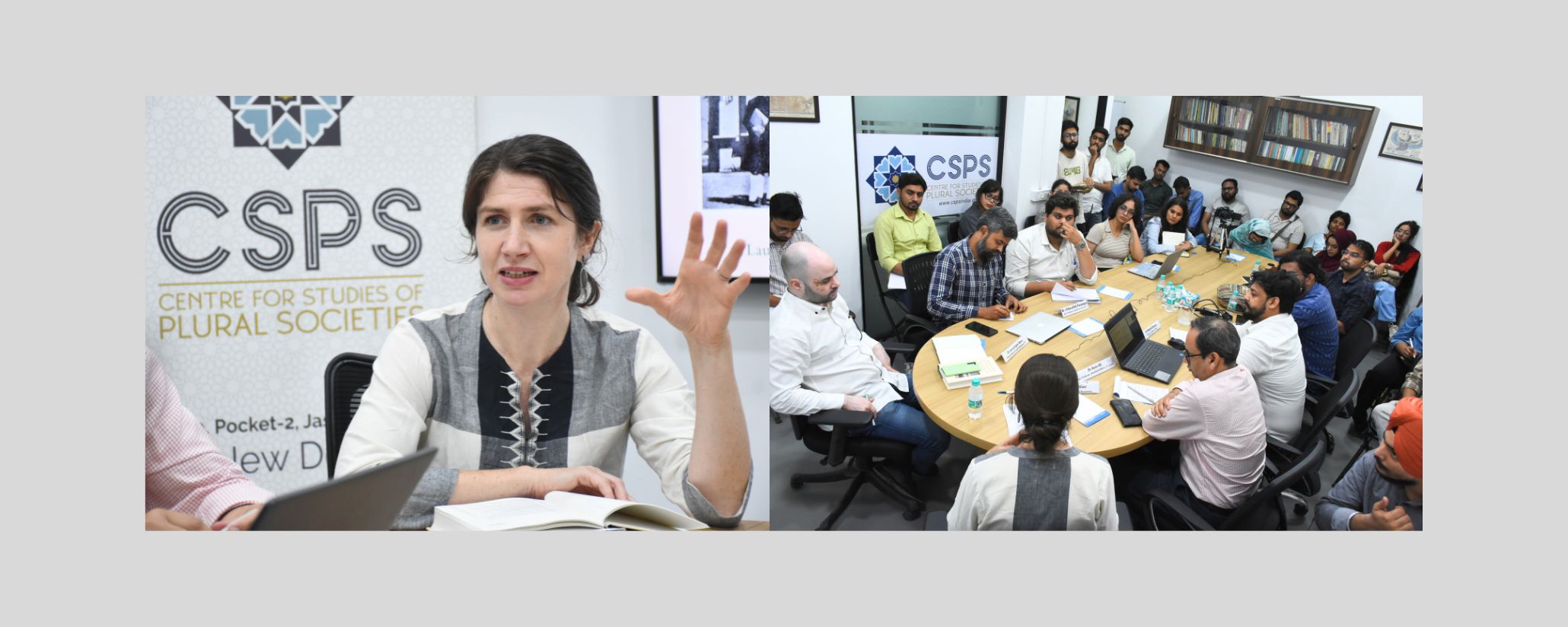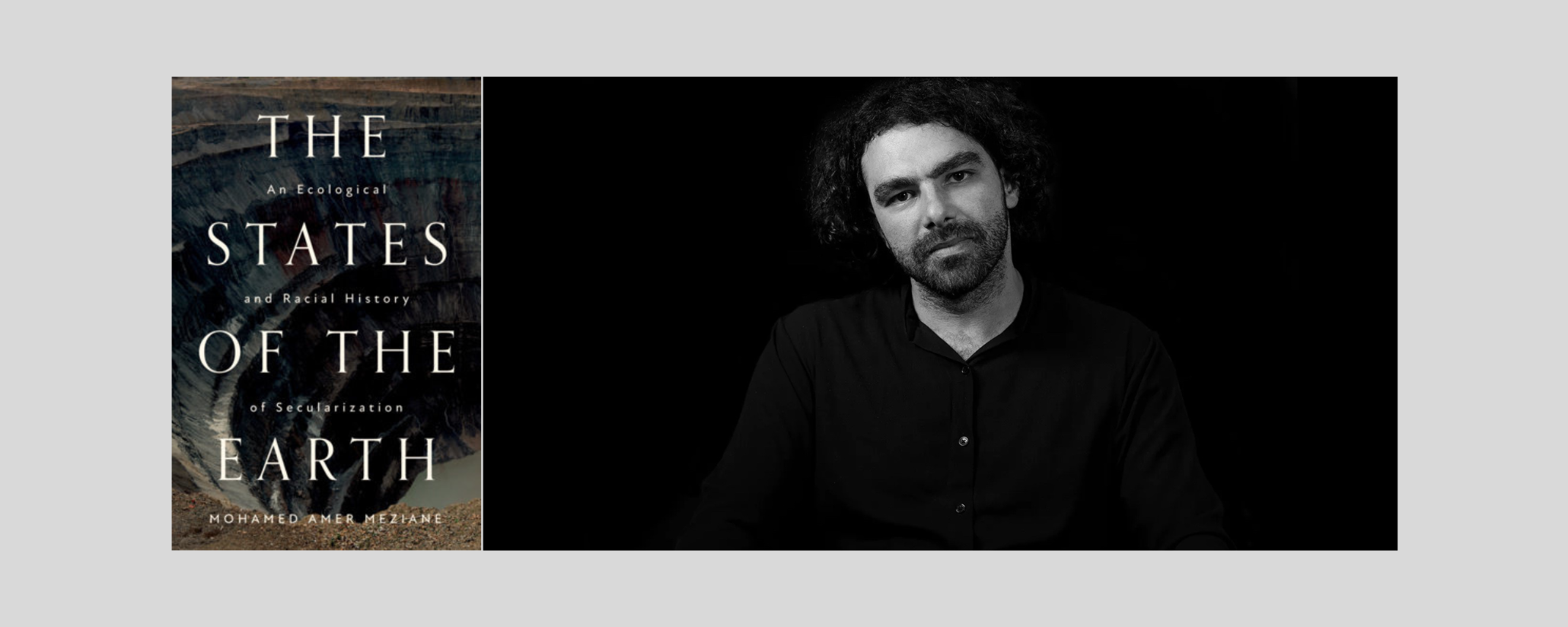The Department of Political Science, Maulana Azad National Urdu University (MANUU), in collaboration with the Centre for the Studies of Plural Societies (CSPS), organized a stimulating discussion on Dr. Javed Iqbal Wani’s recent book titled “Sovereign Anxiety: Public Order and the Politics of Control in India, 1915-1955. ” Dr. Wani is Senior Assistant Professor of Law and Legal Studies at the School of Law, Governance and Citizenship, Dr. B.R. Ambedkar University Delhi. The discussion delved into the central ideas and themes explored in the book and shed light on the intricate relationship between sovereign power, public order, and governance. Muzaffar Hussain, Assistant Professor of Political Science at MANUU, moderated the session.
Dr. Wani initiated the discussion by elucidating the central thesis of “Sovereign Anxiety.” He highlighted how sovereign entities, whether states or ruling regimes, often utilize public order as a pretext to exert control and govern populations. Drawing on historical and contemporary examples, Dr. Wani underscored how states construct narratives about specific groups based on ideology, religion, ethnicity, or region, thereby justifying arbitrary governance practices. He emphasized the phenomenon of creating an “exceptional state,” exemplified by instances such as the Emergency imposed during Indira Gandhi’s tenure, which served to perpetuate the ruling regime’s anxieties and consolidate power.
Furthermore, Dr. Wani traced the origins of sovereign anxiety back to the colonial era, where colonial powers employed discourses to assert control over colonies. By questioning existing legal frameworks and imposing new laws rooted in scientific principles such as the rule of law, colonial powers sought to legitimize their authority and suppress resistance. This practice, Dr. Wani argued, has persisted into modern governance structures, wherein states continue to use mechanisms like friend-enemy distinctions, states of exception, and surveillance to assert control and govern.
The discussion provided valuable insights into power, governance, and public order dynamics. Dr. Wani’s analysis shed light on the inherent tensions between sovereign authority and individual liberties, highlighting the mechanisms through which states justify and perpetuate control. By contextualizing historical precedents within contemporary political realities, the discussion underscored the enduring relevance of the concept of sovereign anxiety in understanding contemporary governance challenges.
The discussion of “Sovereign Anxiety” by Dr. Javed Iqbal Wani offered thought-provoking exploration, deploying meticulous analysis and historical contextualization, of the complex interplay between sovereign power, public order, and governance. The session was invigorated with a robust exchange of ideas and questions, reflecting the depth of engagement with the book’s themes.
The session concluded with remarks and a vote of thanks by Prof Afroz Alam, Head of the Department and Professor of Political Science at MANUU.



